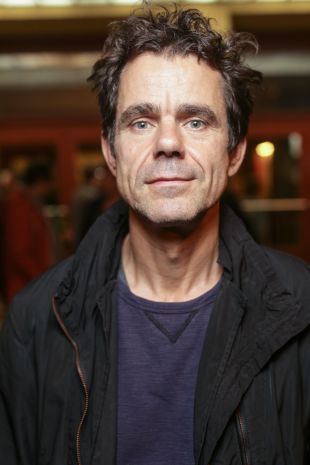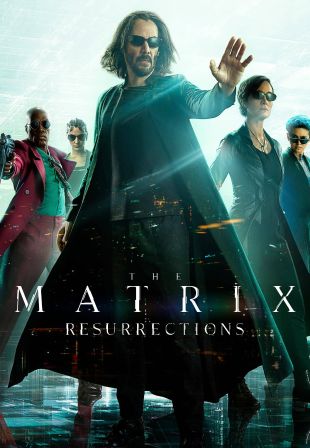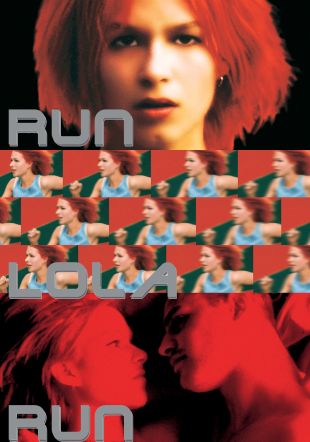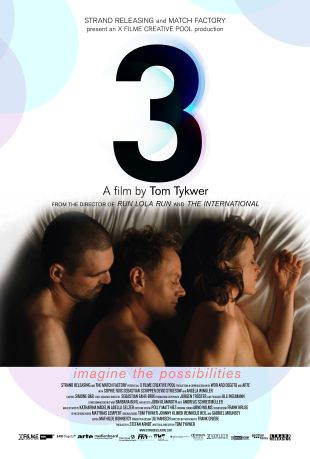Touted as the next major German director, Tom Tykwer made his international breakthrough with the hit Run Lola Run (1998).
A movie fan and autodidact, Tykwer made his first Super-8 film at age 11. Undeterred by his failure to gain admission to Germany's film schools, he entered the film industry in his early twenties, working variously as a projectionist, production assistant, script supervisor, and assistant director. After directing several short films, Tykwer made his feature debut with Deadly Maria (1993). Scripted and scored by Tykwer as well, Deadly Maria became a hit in Germany and earned the first-time auteur several prizes. Seeking to maintain his creative control, Tykwer co-founded the production company X-Filme Creative Pool in 1994 before writing, directing, and scoring his second feature, Winter Sleepers (1997), a drama about the troubled relationships between several snowbound characters.
Tykwer finally made his international name, however, with his third feature, Run Lola Run. An eclectically shot time/space game, Run Lola Run envisioned three different versions of punkette Lola's desperate dash to get 100,000 marks to her drug dealer boyfriend in 20 minutes, revealing how the slightest change can make all the difference. Tykwer's pounding techno score and kinetic camerawork, and star Franka Potente's flame-red hair, enhanced the passionate energy of Lola's quest and turned the film into an unabashedly fun, stylish ride. A film-festival favorite at Sundance and Venice, Run Lola Run became a blockbuster in Germany (inspiring a mini-fad for Lola-colored hair) and an international arthouse success. But Tykwer's eagerly awaited follow-up, The Princess and the Warrior (2000), was less well received on the festival circuit. Though an engagingly original tale of romantic adversity, the sometimes-dragging film was ultimately a victim of comparisons to its hyper-kinetic predecessor.
As Lola engendered herself in American celebrity alongside Matt Damon in the big-budget action extravaganza The Bourne Identity, Tykwer moved further away from his frantic classic with his adaptation of the late Krzysztof Kieslowski's meditative drama Heaven. Kieslowski and Krzysztof Piesiewicz (co-scripters of the seminal Red, White, and Blue) co-authored three additional scripts just before Kieslowski's 1996 death, entitled Heaven, Hell, and Purgatory and loosely adapted from Dante Alighieri's three canticles of the Divine Comedy. The Heaven segment tells the tale of a mentally scarred woman whose act of revenge goes horribly awry.
Though it could be argued that risk-taking directors such as Tykwer will inevitably meet failure from time to time, it remained to be seen if he could re-capture the infectious energy and originality of his early success. After all, one can hardly imagine a more ambitious task than inheriting a project from the genius Kieslowski and seeing it through to fruition, no matter how gifted the protégé. In the end, the final picture's merits and flaws remain to be seen (though it gained increased social relevance following the terrorist acts of 9/11). If Heaven, upon its October 4, 2002 stateside issue, didn't even begin to approach the levels of the Three Colors segments in terms of critical bravura, and failed to become an arthouse sensation, it did glean a surprisingly large number of enthusiastic notices in the American press, particularly from Stephen Holden, who raved, "Mr. Tykwer and Kieslowski are conceptually in accord. Here the clinical, stopwatch precision of Mr. Tykwer's explorations of synchronicity and Kieslowski's warmer, metaphysically dreamy speculations about the role of chance and coincidence in human affairs synchronize into a film whose formal elegance is matched by its depth of feeling." And The Miami Herald's Rene Rodriguez observed, "If Heaven doesn't quite achieve the transcendent power that Kieslowski might have attained, it comes close. One shot in particular, with the couple making love under a tree in silhouette, is a thing of quiet, sublime beauty that is eloquent in a way words never could be."
Several years of directorial inactivity followed for Tykwer, but after producing Mennan Yapo's crime thriller Lautlos (Soundless) in 2004, and Oday Rasheed's Underexposure in 2005, the filmmaker returned to helming with the late 2006 release Perfume: The Story of a Murderer. With this unusual crime thriller, Tykwer mounts an adaptation of Patrick Suskind's bizarre 1985 novel, about an obsessed man, Jean-Baptiste Grenouille (Ben Whishaw), driven over the edge of psychosis (and to serial murder) by his insatiable desire to capture the "spirit of virginal womanhood" in a perfume bottle. Debuting in the U.S. in December 2006, this French-German-Spanish international effort (jointly mounted by Nouvelles Editions de Films, DreamWorks, Constantin Films, and Castelao Productions) co-stars Rachel Hurd-Wood, Dustin Hoffman, and Alan Rickman.



